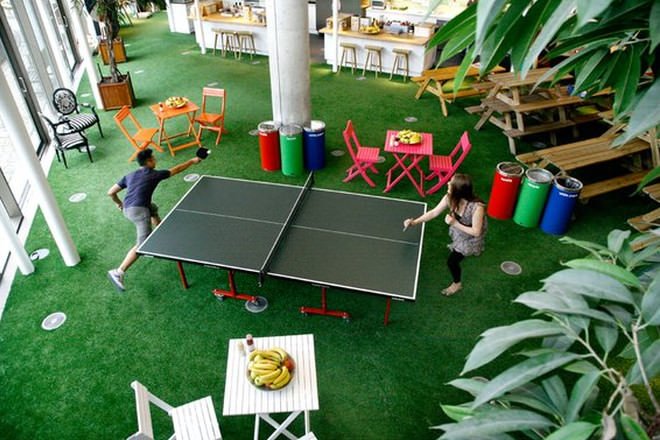
In the 20th century, most people drew are sharp line between their personal lives and their professional lives. If you were born post 1980, you probably have the kind of parents who think you’d be fortunate to have a high paying job, even if you hated it. The baby boomer generation grew up in a simpler time – at least from an employment perspective – where you kept your head down, worked hard and benefited from insurance coverage and, eventually, a big fat pension. In this day and age, however, finding a stable job of this nature is extremely challenging. Many millennials work in the freelance economy, or switch careers several times to find something that is a good fit. This is not only frustrating for baffled parents; it’s also frustrating for employers who end up with a high turnover of workers.
This phenomenon has lead to the evolution of a different kind of corporate culture, one that encourages sensitive millennials to bring their “whole selves” to work, encourages working from home from time to time and provides workplace perks such as ping-pong tables, lunch-time yoga classes and lavish staff parties with gourmet catering and chance to wear charming cocktail dresses.
There is a certain wisdom to this – studies show that the younger generation is less focused onaccruing material wealth and more focused on lifestyle. Therefore, if it feels like the boundary between personal and professional life is a bit looser, then it is more conducive to their needs.
Between parties, creative seminars and a policy of workplace openness, a superior, more efficient work environment can be achieved – so the argument goes. It’s simple if you think about it: the baby boomer generation was fine to slog through an impersonal work environment if they were getting paid a lot. Millennials are content being paid a little less, as long as their quality of life is high and they feel they can express themselves freely at work.
If you’re a corporate manager and you’re having difficulties wrestling with this new attitude, here are a two simple ideas:
1. Throw a Party: make sure you give your staff a chance to blow off some steam once in awhile. Hire local restaurants to cater and serve up beef brisket or something interesting like Persian food – a vegetarian option is always a good idea. There are lots of fun, artistic teaming building exercises you can do as well: make up a story as a team, set up a station for people to draw portraits of each other or play a game of charades. Activities will make it feel like more of a community event. When looking for a professional staffing agency to serve drinks and help with catering, look for a company with a great track record who can serve interesting cocktails and craft beers.
2. Ping Pong (Games): Studies show that taking a break every couple of hours to stretch your legs and reset your brain makes for a more efficient workday. An activity like ping pong will help employees relax and release some endorphins. Letting your staff play games may seem counterintuitive, but think about it: no one can really focus for eight straight hours, giving your workers some perks will increase efficiency.

Founder Dinis Guarda
IntelligentHQ Your New Business Network.
IntelligentHQ is a Business network and an expert source for finance, capital markets and intelligence for thousands of global business professionals, startups, and companies.
We exist at the point of intersection between technology, social media, finance and innovation.
IntelligentHQ leverages innovation and scale of social digital technology, analytics, news, and distribution to create an unparalleled, full digital medium and social business networks spectrum.
IntelligentHQ is working hard, to become a trusted, and indispensable source of business news and analytics, within financial services and its associated supply chains and ecosystems





























